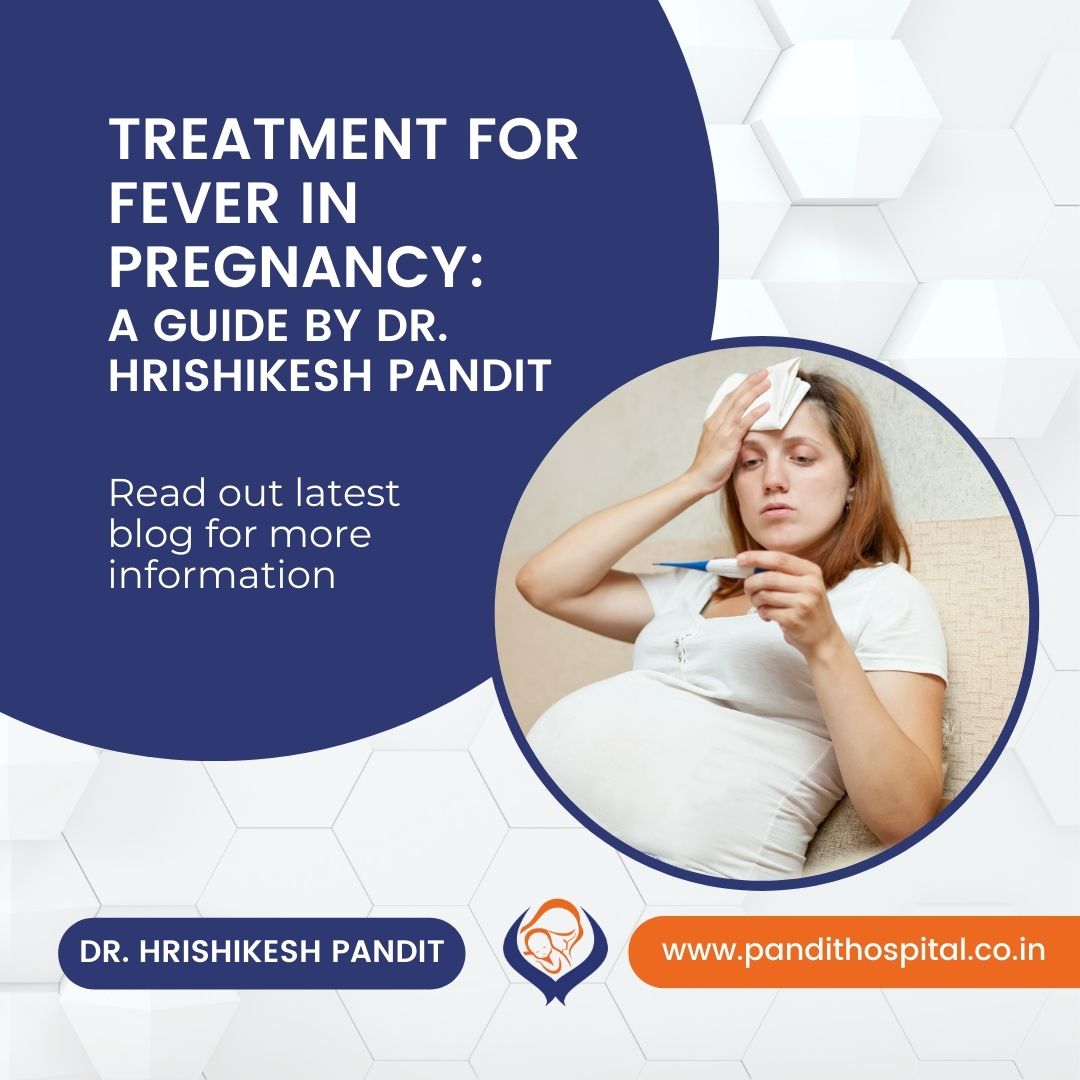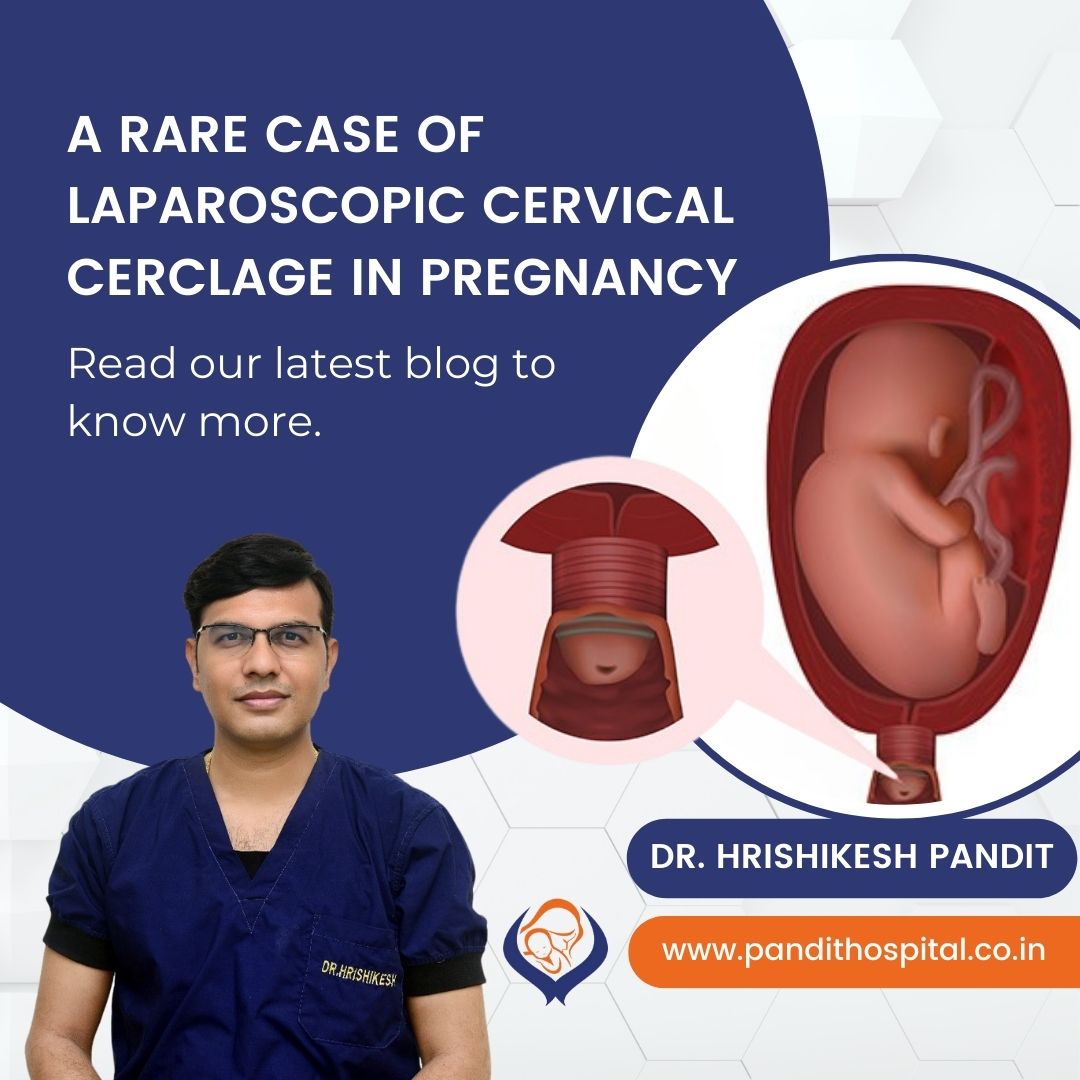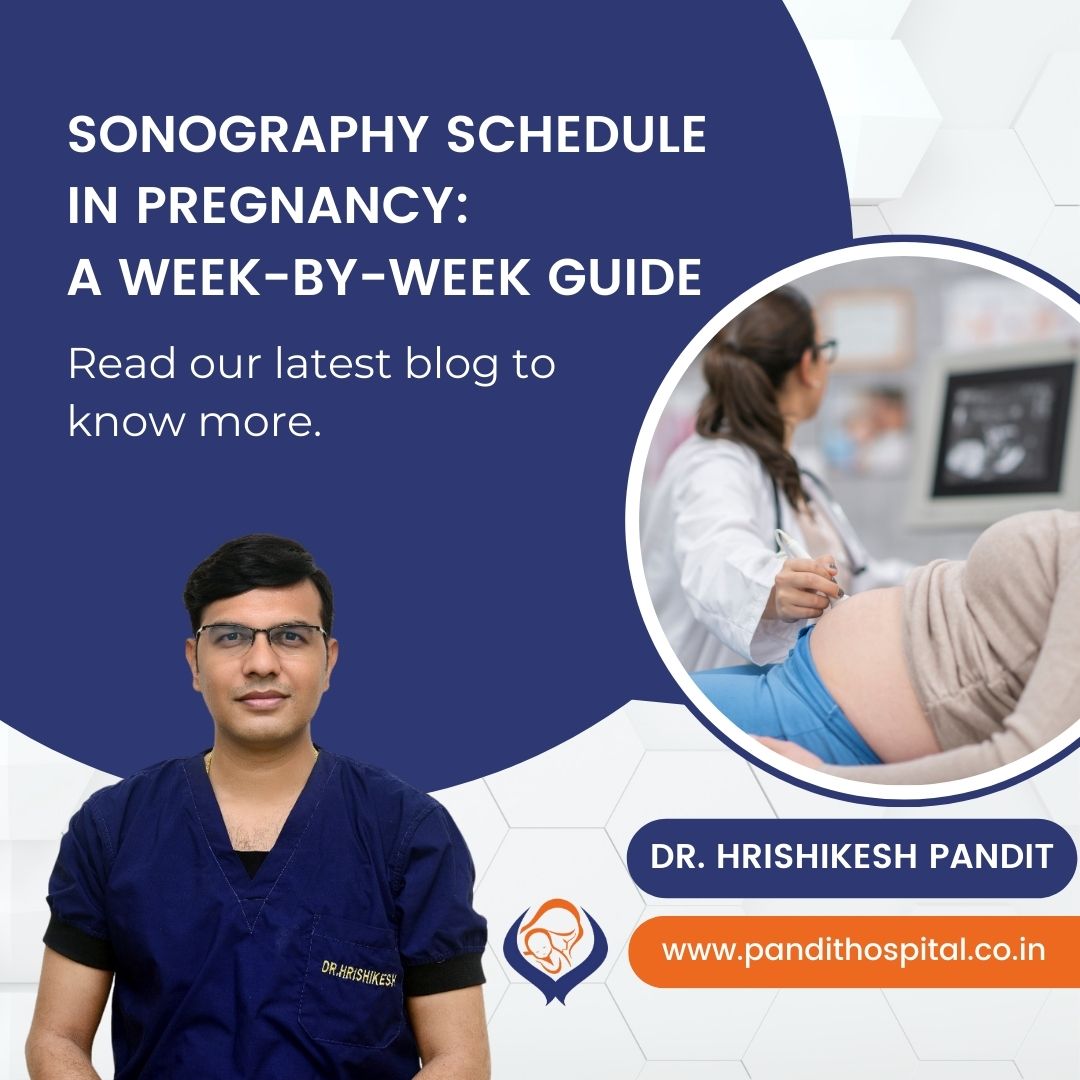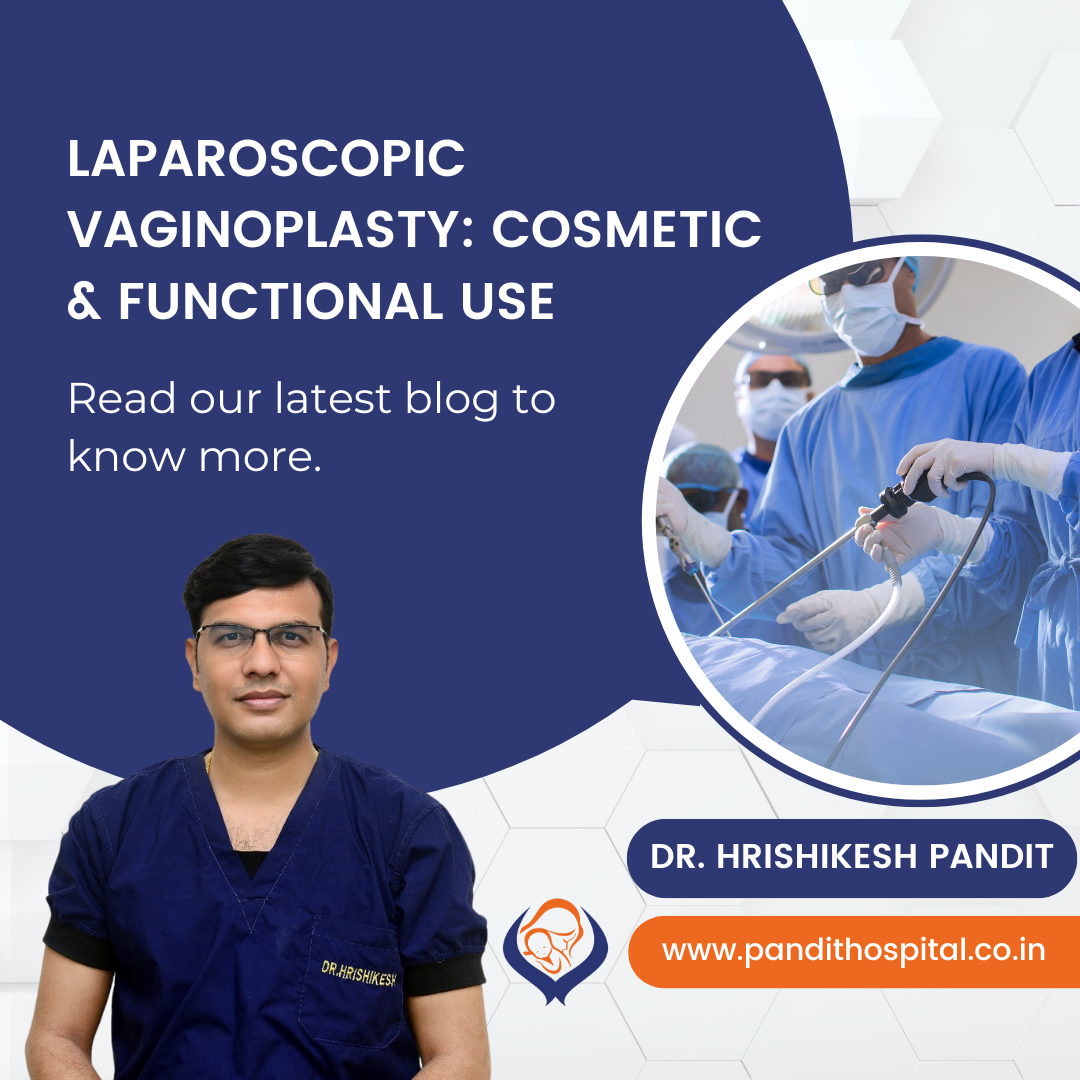Pregnancy is a beautiful journey that requires careful attention to the mother’s health and well-being. However, even the healthiest of pregnancies can be accompanied by unexpected challenges, one of which is fever. As a laparoscopic gynecologist at Pandit Hospital in Bhingar, Ahmednagar, I, Dr. Hrishikesh Pandit understand the concerns that fever in pregnancy can raise. In this blog post, I will provide valuable insights into fever management for expectant mothers, helping them navigate this situation with confidence and ensuring the best possible outcomes for both mother and baby.
Fever is a temporary increase in body temperature, often resulting from infections or inflammatory conditions. During pregnancy, a woman’s immune system undergoes changes, which can make her more susceptible to infections. Common causes of fever during pregnancy include respiratory infections, urinary tract infections, and influenza.
Elevated body temperature can pose risks to both the mother and the developing fetus. It’s crucial to manage fever promptly to avoid potential complications, such as preterm labor, developmental issues, and other adverse effects on the baby.
- Stay Hydrated: Proper hydration is essential. Drink plenty of water, herbal teas, and clear fluids to maintain a healthy body temperature and prevent dehydration.
- Rest: Ensure you get adequate rest to support your body’s immune response and promote healing.
- Monitor Temperature: Keep a thermometer on hand and regularly monitor your body temperature. Contact your doctor if your temperature rises above 100.4°F (38°C).
- Paracetamol: paracetamol is generally considered safe during pregnancy for fever management. However, always consult your healthcare provider before taking any medication.
- Sponge Baths: A lukewarm sponge bath can help reduce fever by gradually lowering your body temperature.
- Contact Doctor: If your fever persists for more than 24 hours or is accompanied by other concerning symptoms such as severe headaches, abdominal pain, or changes in fetal movements, seek medical attention promptly.
- Practice Good Hygiene: Wash your hands frequently and avoid close contact with sick individuals to minimize the risk of infections.
- Vaccinations: Stay up-to-date with recommended vaccinations, including the flu shot, to protect yourself and your baby from preventable illnesses.
- Balanced Diet: A nutritious diet rich in vitamins and minerals supports a healthy immune system. Include plenty of fruits, vegetables, and lean proteins.
- Adequate Rest: Prioritize sufficient sleep to strengthen your immune system and reduce the likelihood of infections.
Summary:
Fever in pregnancy can be concerning, but with proper management and timely medical advice, you can navigate this challenge effectively. As a laparoscopic gynecologist at Pandit Hospital in Bhingar, Ahmednagar, I am dedicated to providing comprehensive care to pregnant mothers, ensuring their well-being throughout this special journey. Remember, never hesitate to reach out to us for guidance and support during pregnancy. Your health and the health of your baby are our top priorities.
At Pandit Hospital, Ahmednagar; Dr. Hrishikesh Pandit has experience with more than 5000 laparoscopic surgeries and has the best 3D laparoscopy technology at his center to provide the best results.
Dr. Hrishikesh Pandit is the pioneer pf 3D laparoscopy technique in Ahmednagar. His experience and skill make him one of the best laparoscopic surgeons in India.
At Pandit Hospital, you are in safe hands!
To consult Dr. Hrishikesh Pandit, Click Below,
Pandit Hospital – Best Maternity care center in Ahmednagar
LET’S SEE OUR INTRO VIDEO
At Pandit Hospital, we provide all the maternity services from antenatal to postnatal period under one roof
Let's Connect!!
0241-2441717 / 0241-2442344
About author:
Dr. Hrishikesh Pandit:
Dr. Hrishikesh Pandit is one of the best obstetrician and gynecologist in India. He is also a well-renowned Laparoscopic surgeon. He obtained his MS (Ob Gyn) degree from the prestigious Pravara Institute of Medical Sciences. He has also done fellowship and diploma courses in laparoscopic surgeries and cancer treatment from Tata Hospital and Keil University, Germany. His surgical cases, papers and videos has been chosen in many international forums of gynecology.
At Pandit Hospital, we are always working hard to provide its patients with the highest level of medical innovation and patient care. With the aim of delivering complete maternity & gynecological care under one roof with the help of all contemporary amenities and cutting-edge medical equipment. Dr. Hrishikesh Pandit has a vision to bring the best of facilities regarding laparoscopy surgeries in the city of Ahmednagar. He is the pioneer of 3D Laparoscopy technology is Ahmednagar.
Latest Articles
Dr. Hrishikesh Pandit is one of the best laparoscopy surgeons in India. His determination to bring 3D Laparoscopy technology to Ahmednagar has eventually helped so many patients. Read the latest articles by Dr. Hrishikesh Pandit on Gynecology, gastric issues, and health tips for mothers during pregnancy.
Laparoscopic Cerclage is done for cervical insufficiency or early abortion history. Consult Dr. Hrishikesh Pandit to know more about it. Excellent results in High Risk Pregnancies. Watch video on YouTube.
At Pandit Hospital, Ahilyanagar, we provide advanced maternity care with state-of-the-art 3D laparoscopy and sonography services to ensure the safety of both mother and baby.
Pandit Hospital, led by Dr. Hrishikesh Pandit, offers 3D laparoscopic treatments including Laparoscopic Vaginoplasty, to restore both form and function in women seeking vaginal reconstruction in india.
FAQ
You should consult a doctor during the first 6 to 8 weeks of your pregnancy, or when your period is 2 to 4 weeks late.
If your contractions are 5 minutes apart, lasting for 1 minute, for 1 hour or longer, it’s time to head to the hospital.
Doctors recommend an infertility evaluation if you have not gotten pregnant after 1 year of having regular sexual intercourse without using birth control. If you are older than 35, an evaluation is recommended after 6 months of trying.
Yes, You can. But most babies need 39 weeks to develop fully. Induced or planned delivery before that time—without a valid medical reason—is not in the best interest of the baby or the mother. After 39 weeks you can plan delivery.
Women who are 21 to 29 should have a Pap test alone every 3 years. HPV testing alone can be considered for women who are 25 to 29, but Pap tests are preferred. Women who are 30 to 65 have three options for testing. They can have a Pap test and an HPV test (co-testing) every 5 years. They can have a Pap test alone every 3 years. Or they can have HPV testing alone every 5 years.
Laparoscopic hysterectomy is a safe and suitable procedure for chosen patients. It affords patients advantages like less peri-operative morbidity, better life quality, shorter hospitalization time, and faster return to activity.
Schedule a doctor’s visit if you have: Greenish, yellowish, thick or cheesy vaginal discharge; Strong vaginal odor; Redness, itching, burning or irritation of your vagina or the area of skin that surrounds the vagina and urethra (vulva); Bleeding or spotting unrelated to your period.
Painless delivery can be achieved using a form of regional anesthesia that provides pain relief during natural labor. Epidural anesthesia is administered through an injection on the lower back of the mother. The drug takes about 10-15 minutes to take effect.
Even in severe cases of endometriosis, most can be treated with laparoscopic surgery. In laparoscopic surgery, your surgeon inserts a slender viewing instrument (laparoscope) through a small incision near your navel and inserts instruments to remove endometrial tissue through another small incision.
The HPV vaccine is recommended for routine vaccination at the age of 11 or 12 years. (Vaccination can be started at age 9.) It is also recommended that vaccination for everyone through age 26 years if not adequately vaccinated when younger. HPV vaccination is given as a series of either two or three doses, depending on age at initial vaccination.





